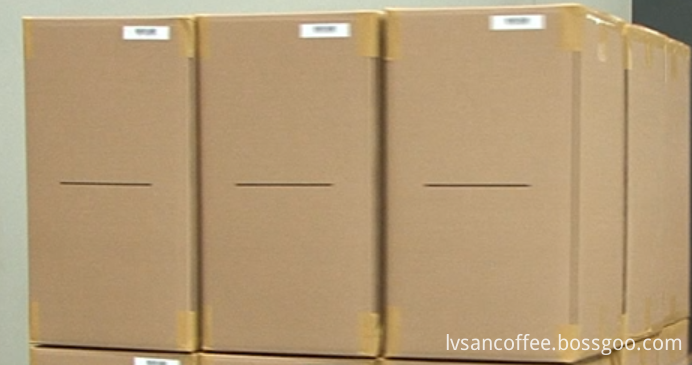Dendritic cells (DC) provide critical for innate and adaptive immune responses. These specialized cells have the ability to capture, process, and present antigen to native T cells to promote their differentiation and activation. Although all dendritic cells are capable of presenting antigens, they are a heterogeneous population of cells. Several dendritic cell subsets have been identified that differ in location, phenotype, and immune function. This plasticity allows them to differentially form an immune response when presenting different microbial antigens or damaging cellular components.
About 1-10% of peripheral blood mononuclear cells (PBMC) in human blood are dendritic cells. This scarcity, as well as the relatively low abundance of unique markers and the newly discovered new subpopulations, make the functional study of dendritic cells a challenge. To solve this problem, R&D Systems has now developed a negative selection kit that enriches dendritic cells isolated from human blood. Unlike the positive selection kit, the MagCellect Human Blood DC Isolation Kit (catalog number MAGH110) allows the isolated dendritic cell population to be untouched, reducing the risk of cell changes during sorting. Flow cytometric analysis of dendritic cell populations isolated with the MagCellect Kit confirmed that more than 90% of the cells were CD14–CD19–BDCA1+BDCA2+BDCA3+ (Fig. 1A). 2-8% of them were BDCA2+CD45+ plasmacytoid dendritic cells (pDC; Fig. 1B), and 82-88% were myeloid dendritic cells (mDC). 20-40% of the mDC cell population is BDCA1+CD11c+, 20-40% is BDCA3+CD11c+, 10-20% is CD16+CD11c+, and 10-25% is CD56+MHCII+, indicating that the MagCellect Kit can be isolated and identified. CD56+ and CD16+ mDC subpopulations (Figures 1C and 1D).
Thermo Fisher Scientific solemnly declares that the 2011 NanoDrop brand of 2000 and 2000C products have been licensed to Gene Company Limited. The company is not responsible for the quality of its products and related after-sales service guarantees for the products of the company operated by Gene Company Limited.
Functional analysis of the enriched population of all DC cells confirmed that the isolated cells maintained the ability to activate the proliferation of allogeneic T cells in a mixed leukocyte response (Figure 2). Since the isolated dendritic cells are not touched by antibodies during the entire enrichment process, they are likely to retain more functional properties than the cells isolated by the positive selection technique. In addition, the MagCellect Kit labels unwanted cells with a mixture of two antibodies, eliminating the need for a separation column and making it easier to use than other kits. R&D Systems' new MagCellect Human Blood Myeloid Dendritic Cell Isolation Kit (catalog number MAGH120) also has similar advantages.
For more information on these kits, please visit our /go/CellSelection or pass
/go/DendriticCells Learn about other product information related to dendritic cell research.
Figure 1. Analysis of dendritic cells isolated from the MagCellect Human Blood Dendritic Cell Isolation Kit using flow cytometry. The MagCellect Human Blood Dendritic Cell Isolation Kit (catalog number MAGH110) can enrich all dendritic cells (DC) from human blood samples. Different dendritic cell subpopulations were detected by flow cytometry using the indicated antibodies, before enrichment (top panel) and after enrichment (bottom panel). A. Detection of all dendritic cells using anti-CD14, anti-CD19, anti-CD1c/BDCA1, anti-DLEC/BDCA2 and anti-Thrombomodulin/BDCA3 antibodies. B. Plasmacytoid dendritic cells (pDC) were detected using anti-DLEC/BDCA2 and anti-CD45 antibodies. C. Detection of CD56+MHCII+ myeloid dendritic cells (mDCs) using anti-CD56 and anti-MHCII antibodies. D. Detection of CD16+CD11c+ mDC using anti-CD16 and anti-CD11c antibodies. The percentage of subpopulations tested may vary from donor to donor.
Figure 2. Dendritic cells isolated using the MagCellect Human Blood DC Isolation Kit induce allogeneic T cell proliferation. Dendritic cells were isolated from human blood using the MagCellect Human Blood Dendritic Cell Isolation Kit (catalog number MAGH110). The ability of these cells to stimulate proliferation of allogeneic T cells was assessed using a mixed leukocyte reaction assay. T cells were either cultured alone (gold wire), or serially diluted with isolated dendritic cells (blue line), or cultured monocyte-derived dendritic cells as a positive control (green line), T cells: The starting ratio of the DC is 8:1. T cell proliferation was determined after 3 days by incorporation of 3H-thymidine.
UTZ Freeze dried coffee: also known as freeze-dried coffee, it is an Instant Coffee made by freezing liquid products and removing ice through sublimation.
The freeze-dried coffee chips retain the original flavor of coffee well. Due to its loose and porous internal structure and fast dissolution rate, it is a "instant coffee" that is convenient to measure and can easily control the concentration of the beverage.
Low temperature extraction, balanced taste, soft and sweet coffee, good taste retention, rich layers, slightly fruit acid.

Freeze Dried Coffee,Freeze Dried Espresso,Freeze Dried Instant Coffee,Best Freeze Dried Instant Coffee
Yunnan New Biology Culture Co,.Ltd , https://www.lvsancoffee.com